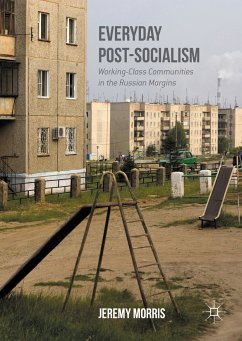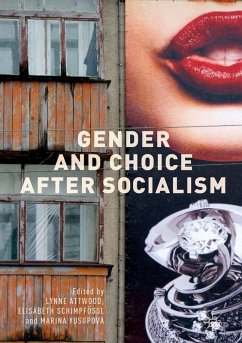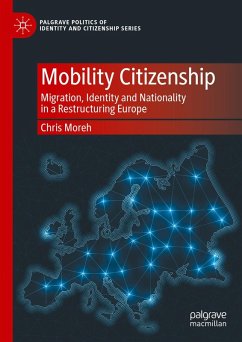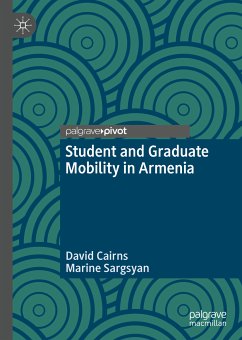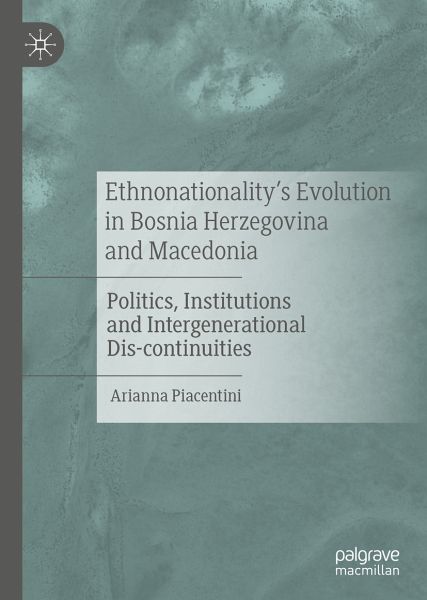
Ethnonationality's Evolution in Bosnia Herzegovina and Macedonia (eBook, PDF)
Politics, Institutions and Intergenerational Dis-continuities
Versandkostenfrei!
Sofort per Download lieferbar
40,95 €
inkl. MwSt.
Weitere Ausgaben:

PAYBACK Punkte
20 °P sammeln!
This book is centred upon the concept of 'ethnonationality,' investigating how its meanings and functions have changed across political regimes, time, and generations. Piacentini explores two similar yet different realities, Bosnia Herzegovina and Macedonia (now North Macedonia) - both former Yugoslav republics, multiethnic, and currently characterised by consociational arrangements and ethnic politics.This temporal perspective encompasses both the Yugoslav and post-Yugoslav period, empirically exploring two generations living together in the same family, each socialised by different macro-env...
This book is centred upon the concept of 'ethnonationality,' investigating how its meanings and functions have changed across political regimes, time, and generations. Piacentini explores two similar yet different realities, Bosnia Herzegovina and Macedonia (now North Macedonia) - both former Yugoslav republics, multiethnic, and currently characterised by consociational arrangements and ethnic politics.
This temporal perspective encompasses both the Yugoslav and post-Yugoslav period, empirically exploring two generations living together in the same family, each socialised by different macro-environments and socio-political and economic conditions. The book explores which ideas, rules, and patterns of behaviour related to ethnonationality have been transmitted between the generations.
Ethnonationality's Evolution in Bosnia Herzegovina and Macedonia will be of interest to students and scholars across a range of disciplines, including sociology, politics, and conflict studies.
This temporal perspective encompasses both the Yugoslav and post-Yugoslav period, empirically exploring two generations living together in the same family, each socialised by different macro-environments and socio-political and economic conditions. The book explores which ideas, rules, and patterns of behaviour related to ethnonationality have been transmitted between the generations.
Ethnonationality's Evolution in Bosnia Herzegovina and Macedonia will be of interest to students and scholars across a range of disciplines, including sociology, politics, and conflict studies.
Dieser Download kann aus rechtlichen Gründen nur mit Rechnungsadresse in A, B, BG, CY, CZ, D, DK, EW, E, FIN, F, GR, HR, H, IRL, I, LT, L, LR, M, NL, PL, P, R, S, SLO, SK ausgeliefert werden.



